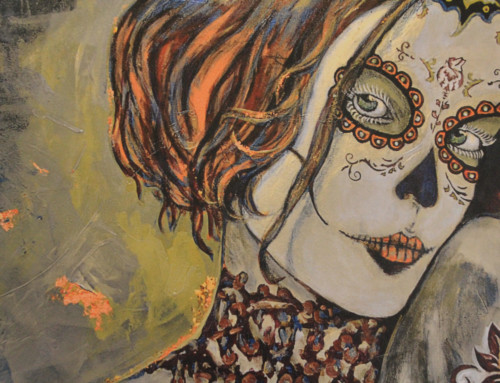The Prisoner of Parkinson-nervous breakdown
The nervous system degeneration is very important in theory of The Prisoner of Parkinson. In particular it is significant to study when the nervousness affects the nervous system illness. These diseases are Parkinson and Alzheimer. The scientific research has not said anything. In 19 cases out of 25 studied by the qualitative sociology (an analysis on the sigle case instead of a standard view on many cases) it emerged this link between the nervousness and the sickness.
There is the need of some clarifying points.
The Prisoner of Parkinson is a sociological theory based on a qualitative analysis and not on a quantitative one. This detail is very important, because it underlines the strenght and the weakness of the theory. Weakness because of the low number of cases studied is and strenght thanks to the deep research on this disease.
In theory of The Prisoner of Parkinson, all the Pakinson patients taken into exam are very irritable. This “behaviour” has already been in the person, but the illness has taken out all this ongoings.
Speaking in general, the extreme nervousness is a result of the globalized century. In details, the today job market uncertainty has developed a big anger, which has led in many cases to divorces (43% in Italy and 45% in USA). The 60% of not-married couples has split up, both parters has faced a big sad anger. Taking into account 100 married couples: 43 have broken up, 55 have managed to face the situation and 2 could not win the disease. One couple of these 2 couples is living hard days balancing the collapse of the nervous system and the deep nervousness.
What does “deep nervousness” mean?
In Italy the nervousness is very popular thanks to a bad civics, but also to some political aspects. Italian people usually tend to be very irritable. This routine has become worst in these last years, indeed in the globalized years. When people speak about their different opinions, they tend to be angry, but they are supposed to listen to what other people say and accept other views. The theory of The Prisoner of Parkinson is taking shape in a social environment very downgrade where the nervousness becomes worst with the disease.
Concluding.
A new research field has just been opened. How much is important the nervousness into leading to the birth of this disease? Is it possible to see the anger as a wasting out of the nervous system? Untill what point is it able to see the nervosness becoming a nerve disease? The theory of The Prisoner of Parkinson is working on these questions and obstacles which are the new sociological research border. I wish everybody a very nice day.
ITALIAN TEXT
In The Prisoner of Parkinson theory, riveste una grande importanza la possibile degenerazione del sistema nervoso. In particolare il riferimento è quanto incide un’intensa attività di nervosismo sull’insorgenza di patologie tipiche del sistema nervoso. Queste sono Parkinson e Alzheimer. Su questo tema la ricerca scientifica ancora non si è espressa.
Nelle indagini di sociologia qualitativa (analisi del singolo caso anzichè standardizzazione su molti eventi) emerge in 19 casi su 25 una forte correlazione.
Qui servono alcuni punti di chiarezza.
The Prisoner of Parkinson è una teoria sociologica strutturata su analisi di tipo qualitativo, non quantitativo. Questo dettaglio non è di poco conto, perchè esprime sia la forza che la debolezza della teoria. Debolezza per i pochi casi esaminati. Forza, perchè nello studio approfondito c’è l’intera ricchezza dello studio.
In The Prisoner of Parkinson theory, i pazienti di Parkinson esaminati, soffrono tutti di un’accentuata reazione nervosa. Tale “attività” esisteva già prima dell’insorgenza della malattia. La reattività si è poi aggravata negli anni.
Generalizzando, emerge come l’eccessiva reattività di nervosismo sia un frutto tipico dell’era globalizzata. Nel dettaglio, l’aver introitato nella vita privata l’incertezza lavorativa, tipica da globalizzazione, ha prodotto un nervosismo di fondo. Spesso questa agitazione ha scatenato un divorzio (43% dei casi in Italia e 45% negli Usa). In altri eventi il 60% delle coppie di fatto, si è separato, subendo un’ondata di sofferenza nervosa. In altri casi, senza divorzio o abbandono, il nervosismo ha favorito la malattia.
Complessivamente su 100 coppie sposate 43 hanno divorziato, 55 hanno resistito e 2 hanno certamente ceduto alla malattia.
Di queste 2 su 100, almeno 1 ha una diretta corrispondenza tra il collasso del sistema nervoso e l’abuso di nervosismo vissuto.
Cosa significa abuso del sistema nervoso?
Per una questione di cattiva educazione civica, ma anche per peculiari aspetti socio-politici italiani, il nervosismo è molto diffuso. Le persone italiane, in linea di massima, sono molto arrabbiate. Questa tendenza è peggiorata negli anni 2000, appunto in era globalizzata. Nei litigi, la gente tende ad abbaiare, anziché ascoltare cosa dicono gli altri per rispondere. In un ambiente sociale così degradato, la teoria sociologica The Prisoner of Parkinson, ha mosso i suoi primi passi, riscontrando come il nervosismo peggiorasse notevolmente con la malattia.
Conclusioni.







Non so se c’e’ relazione tra nervosismo e la malattia,però da figlia di un uomo ammalato di Parkinson posso dire che il nervosismo era di casa ,Mio padre era una persona sempre molto agitata e facilmente predisposto all’ira ,La malattia è stata diagnosticata attorno ai 50 anni, tenuta a bada per un decennio e degenerata nel decennio seguente fino a portarlo alla morte per le varie complicanze dovute alla stessa
apprezzo e ringrazio per questa precisazione che arricchisce la meditazione e correlazione tra atti dati per scontato da tutti ma che tali non sono. Grazie, il prof